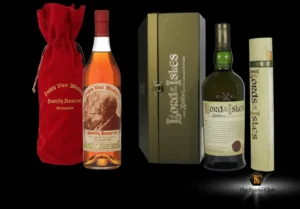
Spotlight on rare spirits
In-depth profiles of specific rare spirits distilleries, their history, and why they are valuable investments Image 1 Pappy Van Winkle 20 years old Family Reserve
In the following pages you will discover how this highly profitable investment is within everyone’s reach, even beginners. Learn more about alternative assets investment below.

The high volatility of traditional markets, combined with their unpredictability of performance, has pushed large numbers of international investors to increasingly diversify their portfolio into luxury assets...

Investment in rare and prestigious bottles worldwide - High experience in the search and availability of bottles - Product and management transparency..
If you would like to improve and diversify your investment portfolio, you can see a higher return and reduce the risks.
Investing in limited edition whiskey bottles is a safe and tax efficient option.
Investing in collectible whiskey or rare whiskey can get you as much as 250 percent return.
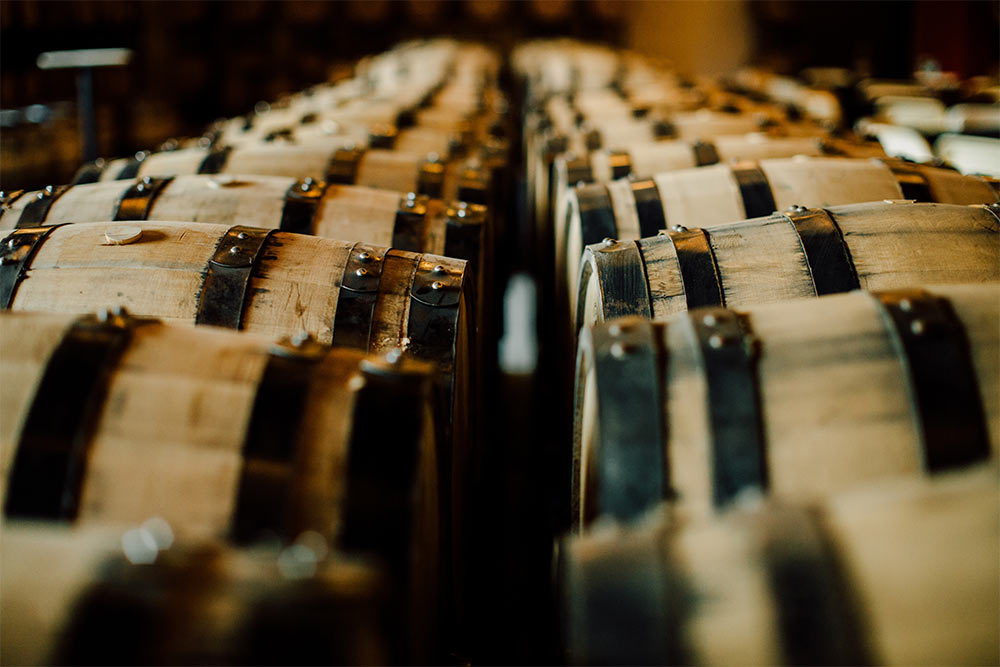

This type of investment aims to diversify portfolios and potentially achieve higher returns. One intriguing subset of alternative assets investment is investing in rare spirits, including limited edition whiskey and collectible whiskey.
Limited edition whiskey refers to special releases by distilleries, often produced in small quantities and with unique characteristics, making them highly sought after by collectors. These whiskeys can appreciate significantly in value over time due to their rarity and desirability.
Collectible whiskey encompasses a broader category that includes any whiskey perceived to have significant value due to factors like age, brand reputation, historical significance, or limited production runs. Rare spirits, in general, fit into this category, as they are often older, harder to find, and can command high prices on the secondary market.
Investors in these alternative assets hope to capitalise on the increasing demand among enthusiasts and collectors, driving up the value of these rare and limited edition spirits. This market’s niche and exclusive nature can provide a hedge against traditional market volatility and add an interesting and potentially lucrative element to a diversified investment portfolio.
Our experts will allow you to easily access the investment in fine spirits, totally guided and managed by us, starting from the initial moment of selection of the best performing labels, to the storage of your bottles, to the updating of their market quotations, up to their liquidation with profit.
Our team of experts will allow you to exploit the full potential of investing in luxury spirits, focusing only on labels that can generate profits among the highest in the market.
Investing in limited edition whiskey, particularly rare and collectible whiskey, has become increasingly popular due to its impressive financial performance and market dynamics. Here are key financial data and trends supporting this investment:
In summary, the combination of robust market growth, rising auction prices, strong demand in Asia, and impressive investment performance makes limited edition whiskey an attractive alternative asset. These factors underscore its potential for high returns and portfolio diversification.
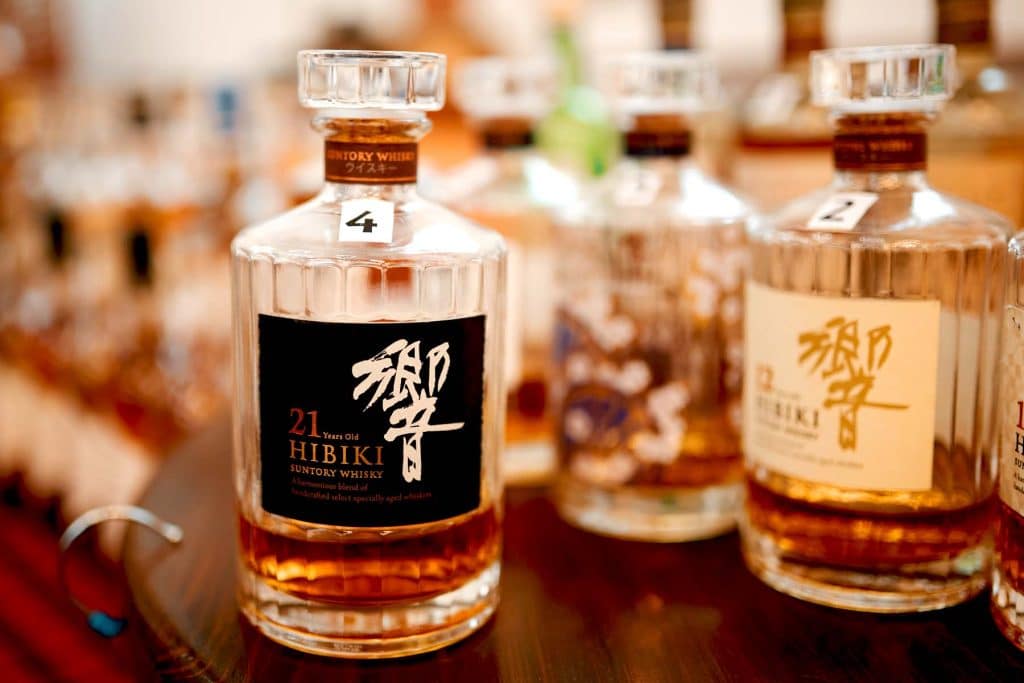
The financial benefits of whiskey investment, particularly in alternative assets like limited edition whiskey, rare spirits, and collector whiskey, are substantial and diverse. Here’s why:
Overall, the financial benefits of whiskey investment include potential capital appreciation, portfolio diversification, inflation protection, and historical performance. By leveraging these advantages, investors can build wealth and secure their financial futures through this alternative asset class.

In-depth profiles of specific rare spirits distilleries, their history, and why they are valuable investments Image 1 Pappy Van Winkle 20 years old Family Reserve
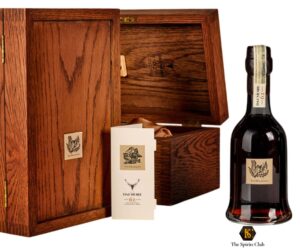
The Dalmore 62-Year-Old Scotch Whisky represents one of the most coveted and exclusive investment-grade spirits in the world. With only a limited number of bottles
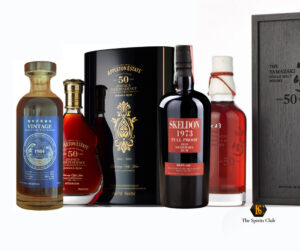
Many could see in this picture a mere spirits bottles display: for us and our customers, this is an investment portfolio The fine spirits market
info@yourspiritsclub.com
207 Regent Street, W1B 3HH
London, United Kingdom
PH. +44 02087980697
Via Roberto Lepetit 8/10
20124 Milano, Italy
PH. +39 3792088040
Chrysler Building, 26th floor, 405 Lexington Avenue
New York City, 10174, USA
PH. +1 6464753785

| Cookie | Duration | Description |
|---|---|---|
| cookielawinfo-checkbox-advertisement | 1 year | Set by the GDPR Cookie Consent plugin, this cookie records the user consent for the cookies in the "Advertisement" category. |
| cookielawinfo-checkbox-analytics | 1 year | Set by the GDPR Cookie Consent plugin, this cookie is used to record the user consent for the cookies in the "Analytics" category . |
| cookielawinfo-checkbox-functional | 1 year | The GDPR Cookie Consent plugin sets the cookie to record the user consent for the cookies in the category "Functional". |
| cookielawinfo-checkbox-necessary | 1 year | Set by the GDPR Cookie Consent plugin, this cookie is used to record the user consent for the cookies in the "Necessary" category . |
| cookielawinfo-checkbox-others | 1 year | Set by the GDPR Cookie Consent plugin, this cookie stores user consent for cookies in the category "Others". |
| CookieLawInfoConsent | 1 year | Records the default button state of the corresponding category & the status of CCPA. It works only in coordination with the primary cookie. |
| elementor | never | This cookie is used by the website's WordPress theme. It allows the website owner to implement or change the website's content in real-time. |
| viewed_cookie_policy | 1 year | The GDPR Cookie Consent plugin sets the cookie to store whether or not the user has consented to use cookies. It does not store any personal data. |
| wp-wpml_current_language | session | WordPress multilingual plugin sets this cookie to store the current language/language settings. |
| Cookie | Duration | Description |
|---|---|---|
| _fbp | 3 months | Facebook sets this cookie to display advertisements when either on Facebook or on a digital platform powered by Facebook advertising after visiting the website. |
| _ga | 1 year 1 month 4 days | Google Analytics sets this cookie to calculate visitor, session and campaign data and track site usage for the site's analytics report. The cookie stores information anonymously and assigns a randomly generated number to recognise unique visitors. |
| _ga_* | 1 year 1 month 4 days | Google Analytics sets this cookie to store and count page views. |
| CONSENT | 2 years | YouTube sets this cookie via embedded YouTube videos and registers anonymous statistical data. |
| Cookie | Duration | Description |
|---|---|---|
| VISITOR_INFO1_LIVE | 5 months 27 days | YouTube sets this cookie to measure bandwidth, determining whether the user gets the new or old player interface. |
| VISITOR_PRIVACY_METADATA | 5 months 27 days | Description is currently not available. |
| YSC | session | Youtube sets this cookie to track the views of embedded videos on Youtube pages. |
| yt-remote-connected-devices | never | YouTube sets this cookie to store the user's video preferences using embedded YouTube videos. |
| yt-remote-device-id | never | YouTube sets this cookie to store the user's video preferences using embedded YouTube videos. |
| yt.innertube::nextId | never | YouTube sets this cookie to register a unique ID to store data on what videos from YouTube the user has seen. |
| yt.innertube::requests | never | YouTube sets this cookie to register a unique ID to store data on what videos from YouTube the user has seen. |